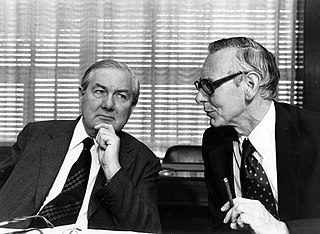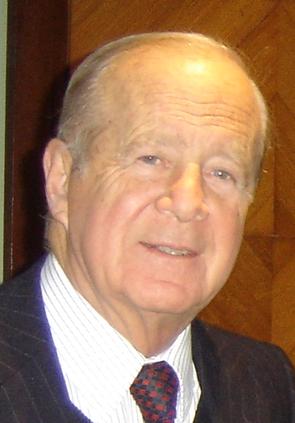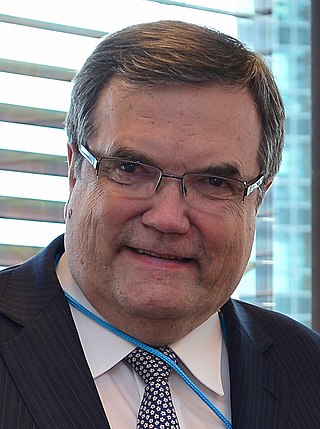
The foreign relations of Ethiopia refers to overall diplomatic relationship of Ethiopia. The Ministry of Foreign Affairs oversees foreign relations and diplomatic missions of the country.
Since 1980, the foreign relations of Iraq have been influenced by a number of controversial decisions by the Saddam Hussein administration. Hussein had good relations with the Soviet Union and a number of western countries such as France and Germany, who provided him with advanced weapons systems. He also developed a tenuous relation with the United States, who supported him during the Iran–Iraq War. However, the Invasion of Kuwait that triggered the Gulf War brutally changed Iraq's relations with the Arab World and the West. Egypt, Saudi Arabia, Syria and others were among the countries that supported Kuwait in the UN coalition. After the Hussein administration was toppled by the 2003 U.S. invasion, the governments that succeeded it have now tried to establish relations with various nations.

Kenya maintains relations with various countries around the world. Its closest ties are with its fellow Swahili-speaking neighbors in the African Great Lakes region. Swahili speaking neighbours mainly include countries in the East African Community such as Burundi, the DRC, Rwanda, South Sudan, Tanzania and Uganda.
The foreign policy of Lebanon reflects its geographic location, the composition of its population, and its reliance on commerce and trade. Until 2005, Lebanon's foreign policy had been heavily influenced by Syria, however beginning with the formation of Hezbollah in 1982, Iran had gradually grown to heavily influence Lebanon.

Ensuring national security, increasing influence among its Arab neighbours and securing the return of the Golan Heights, have been the primary goals of the Syrian Arab Republic's foreign policy. At many points in its history, Syria has seen tension with its neighbours, such as Turkey, Israel, Jordan, Iraq, and Lebanon. Syria enjoyed an improvement in relations with several of the states in its region in the 21st century, prior to the Arab Spring and the Syrian Civil War.
Tanzania's first president, Julius Nyerere also was one of the founding members of the Non-Aligned Movement, and, during the Cold War era, Tanzania played an important role in regional and international organisations, such as the Non-Aligned Movement, the front-line states, the G-77, and the Organisation of African Unity (OAU). One of Africa's best-known elder statesmen, Nyerere was personally active in many of these organisations, and served chairman of the OAU (1984–85) and chairman of six front-line states concerned with eliminating apartheid in Southern Africa. Nyerere was also involved with peace negotiations in Burundi until his death. Nyerere's death, on 14 October 1999, is still commemorated annually.

In many countries, the ministry of foreign affairs is the highest government department exclusively or primarily responsible for the state's foreign policy and relations, diplomacy, bilateral, and multilateral relations affairs as well as for providing support for a country's citizens who are abroad. The entity is usually headed by a foreign minister or minister of foreign affairs. The foreign minister typically reports to the head of government.

Ahmed Ouyahia is an Algerian politician who was prime minister of Algeria four times. A career diplomat, he also served as Minister of Justice, and he was one of the founders of the Democratic National Rally (RND) as well as the party's secretary-general. He is considered by Western observers to be close to the military of Algeria and a member of the "eradicator" faction in the 1990s civil war against Islamist militants. Ouyahia resigned as prime minister in March 2019 following President Bouteflika's announcement that he would not seek reelection, and Ouyahia was arrested in June 2019 for crimes related to corruption. He was later convicted and is currently serving 19 years in jail.

Jean François-Poncet was a French politician and diplomat who served as Minister of Foreign Affairs under President Valéry Giscard d'Estaing from 1978 to 1981. From 1983 until 2011, he was a member of the Senate for Lot-et-Garonne.

Jaakko Tapani Laajava has served as Foreign Affairs and Security Policy Under-Secretary of State for Foreign Affairs for Finland from 1 April 2010. Prior to that, he served as Ambassador to the United Kingdom in 2005.

The Ministry of Foreign Affairs of the Russian Federation is the central government institution charged with leading the foreign policy and foreign relations of Russia. It is a continuation of the Ministry of Foreign Affairs of the Russian Soviet Federative Socialist Republic, which was under the supervision of the Soviet Ministry of External Relations. Sergei Lavrov is the current foreign minister.
Osman Faruk Loğoğlu is a Turkish diplomat and the former Turkish ambassador to the United States of America, having served from 2001 to 2005.

The Ministry of Foreign Affairs of the Kingdom of Thailand is the principal governmental department in charge of foreign relations for Thailand. The ministry is headed by the Minister of Foreign Affairs, who is also a member of the Cabinet of Thailand. The Minister of Foreign Affairs is appointed by the Prime minister. The ministry is charged with formulating and executing foreign policies for the Kingdom of Thailand and also manages and maintains Thai diplomatic missions around the world.
The Ministry of Foreign and European Affairs of the Republic of Slovenia is an executive department of the Government of Slovenia responsible for relations with other countries and international organisations, monitoring of the international political and economic situation, and strengthening of Slovenia's relations with other countries and international organisations.

The Ministry of Foreign Affairs of Eritrea is a government ministry which oversees the foreign relations of Eritrea. Eritrea's current minister of foreign affairs is Osman Saleh Mohammed, since 2007.

Foreign relations of Djibouti are managed by the Djiboutian Ministry of Foreign Affairs and International Cooperation. Djibouti maintains close ties with the governments of Somalia, Ethiopia, France and the United States. It is likewise an active participant in African Union, United Nations, Non-Aligned Movement, Organisation of Islamic Cooperation and Arab League affairs.










